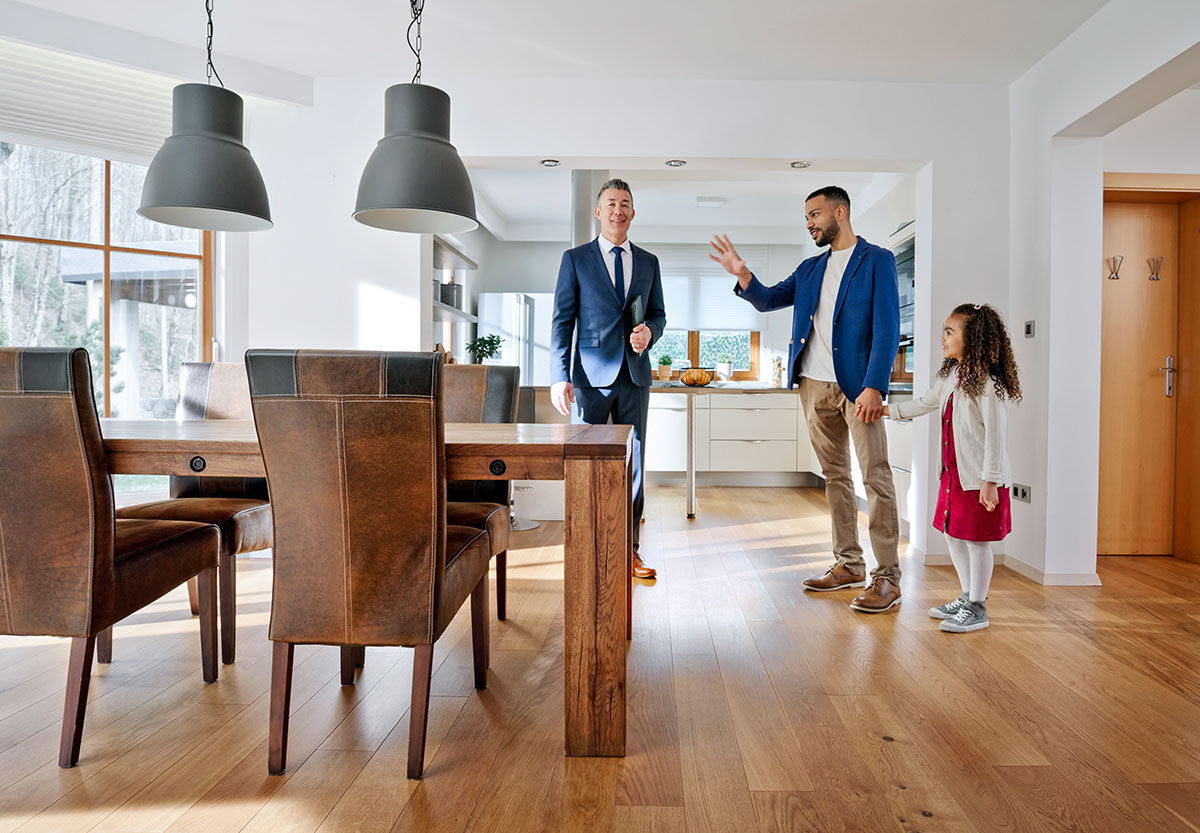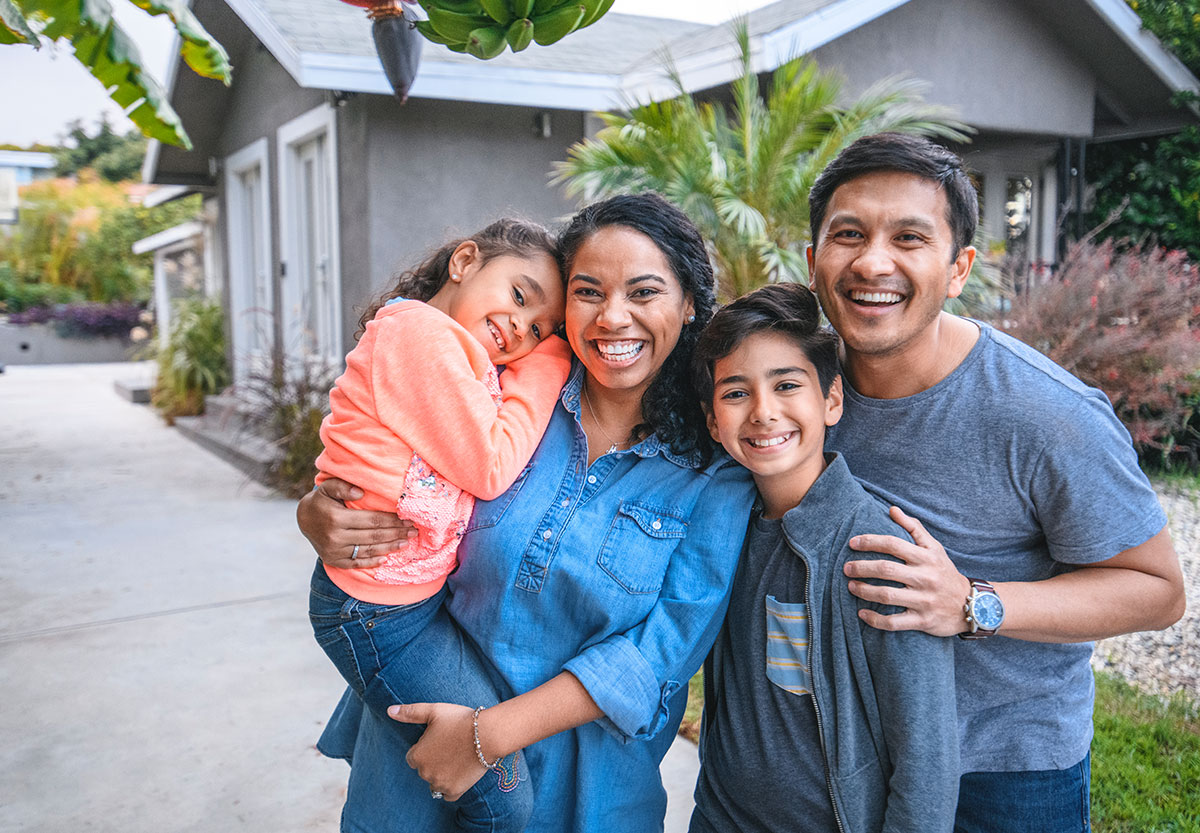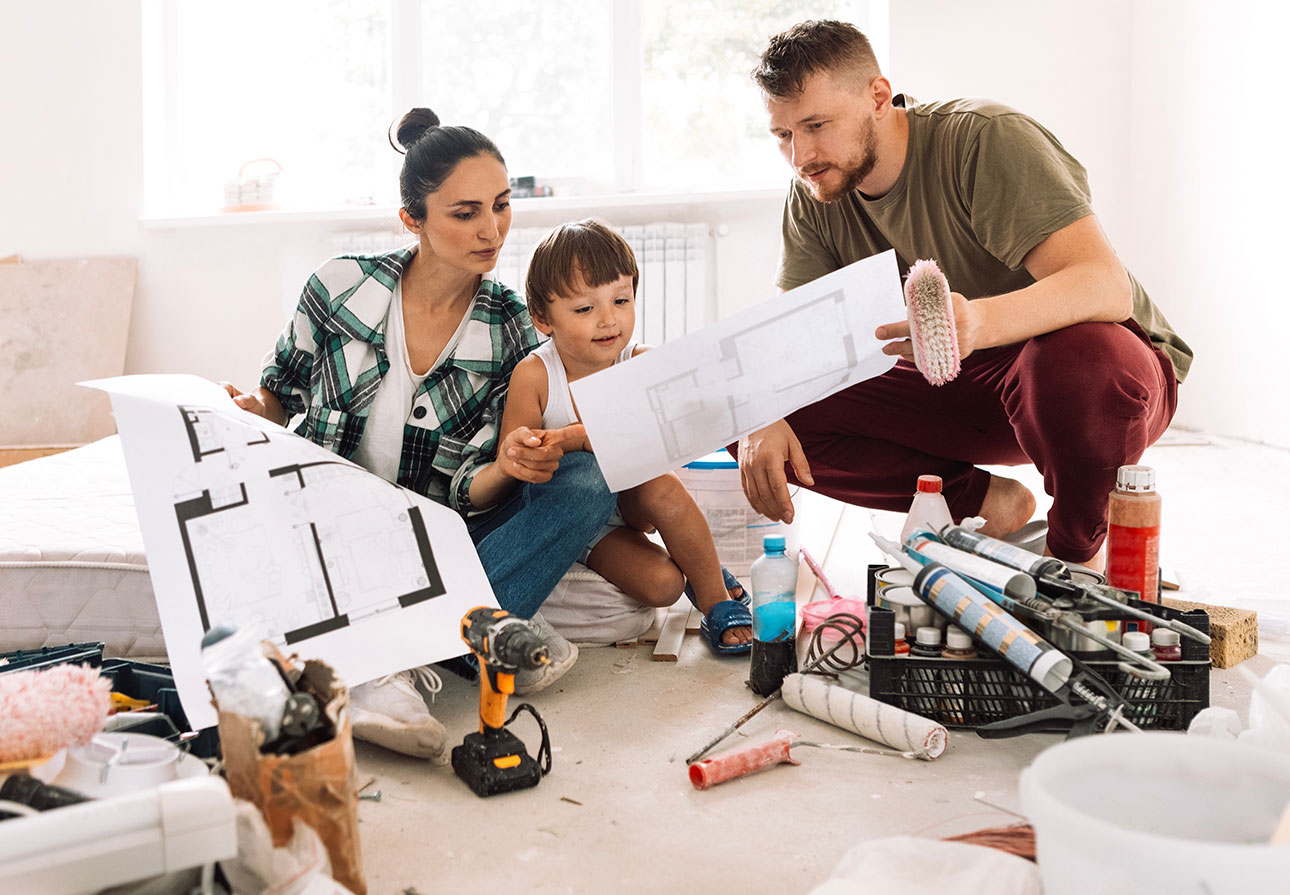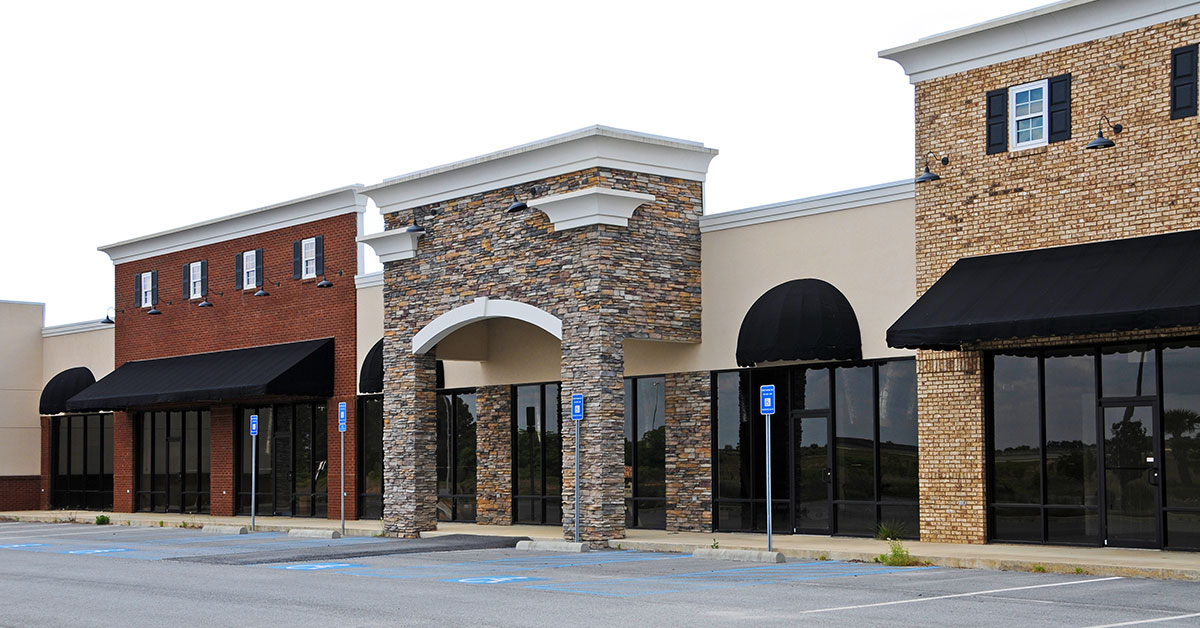
Tips for Buying Your First Home in Florida
Updated 1/15/26
Starting the adventure of buying a house in Florida can be both thrilling and overwhelming. But you're not in this alone. Whether you're a seasoned homeowner or completely new to the process, successfully navigating the complexities of purchasing a home hinge on equipping yourself with the right knowledge. In this guide, we're here to support you every step of the way, offering crucial insights to empower you to make informed decisions and secure a home that's truly worth your investment. Keep reading to discover the top tips and advice for buying your first home.
Benefits of Being a First-Time Buyer
Buying your first house comes with a host of benefits that can make the process more manageable and financially feasible. To start, there are numerous mortgage assistance programs out there ready to lend a hand, covering everything from down payments to closing costs. These mortgage programs can be a game-changer, especially for those who might be strapped for cash initially.
Plus, first-time homebuyer mortgages* typically have lower down payment requirements and competitive interest rates, making homeownership more accessible. And here's the kicker: the definition of "first-time homebuyer" is broader than you might think. Even if you've owned property before, you could still qualify for benefits. So, it's worth checking out the eligibility criteria**—you might be pleasantly surprised by what you find!
Common Mistakes to Avoid
1. Waiting to Start Saving for a House
Don't procrastinate on saving for your dream home. Set yourself up for success by automating transfers to a dedicated savings account specifically earmarked for your home-buying journey. Consider opening a High-Yield Savings Account (HYSA) to make the most of competitive interest rates, ensuring your money grows steadily over time. Remember to allocate funds for both the down payment and closing costs to avoid any last-minute financial hurdles. Starting early and being proactive in your saving approach can significantly ease the path to homeownership.
Mortgage down payments can start from 5%, with some options even offering no down payment. The 20% down payment that you may normally hear is the standard minimum as under that amount may carry an additional monthly fee in the form of Private Mortgage Insurance (PMI). Lenders use PMI to protect themselves in case you default on your loan, however there are first-time homebuyer programs that actually offer both no down payment and no PMI. In either case, it’s essential to have a little more in your savings in addition to your down payment. The extra money will allow you to pay for the other not-so-obvious costs to homebuying, including closing costs, appraisal fees, home inspections, moving expenses, and unexpected home repairs and upgrades.
2. Shopping without a Pre-approval
One common mistake that homebuyers often encounter is diving into the house hunting process without obtaining a pre-approval from a lender. A pre-approval not only demonstrates your commitment to sellers but also signals your financial readiness to make a serious offer. By securing a pre-approval, you gain a clear understanding of how much home you can afford, enabling you to set realistic expectations and avoid the temptation of shopping outside your budget. This proactive step not only streamlines the homebuying process but also positions you as a confident and attractive home buyer in the competitive real estate market. A mortgage preapproval is also proof of how much a lender is willing to loan you to buy a home, and it also outlines the specific terms of the loan. Having a preapproval in hand will improve your standing with sellers by showing them you will have the funds available to make the purchase making them more likely to accept your offer.
Furthermore, you’ll have a better understanding of how much home you can afford once you have a preapproval. This will help prevent you from falling in love with a home outside of your budget. On top of that, you’re less likely to run into last-minute delays or issues with your lender that could impact your ability to complete the purchase.
3. Not Shopping Around for the Best Mortgage Product and Lender
Avoid the mistake of not exploring various mortgage loan options and lenders. It's essential to investigate different loan products, comparing rates, terms, and conditions to find the most suitable fit for your financial situation. This way, you can uncover potential savings and benefits that align with your long-term homeownership goals.
Additionally, evaluating multiple home lenders allows you to identify the one that offers the best combination of competitive rates, excellent customer service, and personalized assistance, ensuring a smooth and favorable lending experience tailored to your needs.
4. Ignoring Homebuying Assistance Programs
One common mistake is disregarding first-time homebuyer programs, which offer various forms of assistance. These programs typically include:
- Down Payment Assistance
- Closing Cost Assistance
- Cash Grants
- Temporary Interest Rate Reductions
- Interest-free Mortgages
It is important to note that eligibility criteria vary; some first-time homebuying programs cater to lower-income households or specific socioeconomic backgrounds, while others operate on a first-come, first-served basis.
To explore available options, individuals can check their county's website for local housing assistance programs and visit the HUD website** for information on state and national programs.
For Florida-specific housing assistance, check out our guide on first-time home buyers programs in Florida.
5. Moving Too Fast or Acting on Emotion
Buying your first house is undoubtedly an emotional journey**, but it's also one of the largest financial commitments you'll make. While it's natural to be swept up in the excitement, it's essential to approach the process with a level head. Take a moment to pause, do your due diligence, and arm yourself with knowledge. By making informed decisions based on your financial situation rather than purely on emotion, you'll avoid potential pitfalls and ensure a more successful homebuying experience in the long run.
6. Buying More Home than You Can Afford or Depleting Your Savings
Don't bite off more than you can chew when buying your first home. Use your mortgage pre-approval to stick to your budget and avoid overspending. Keep your savings intact, especially your emergency fund, as it offers vital financial security. Prioritize building this fund before focusing on your down payment savings. Having a robust emergency fund not only protects against unexpected expenses but also provides peace of mind and guards against potential foreclosure.
7. Going with the First Real-Estate Agent You Find
While it might be tempting to go with the first real estate agent you come across, taking the time to find the right fit is crucial. Seek referrals from friends or family members who have had positive experiences and opt for an agent who is well-versed in the local market. Don't hesitate to interview multiple agents to ensure their approach aligns with your expectations and needs. Investing time in finding the right agent will increase your likelihood of a successful and satisfying first-time homebuying experience.

8. Treating Your First Home as an Investment
It's easy to get caught up in the idea of turning your first home into an investment opportunity, but it's essential to maintain a practical perspective. Remember, your first home is primarily your residence, not a financial asset. Instead of solely focusing on its potential for appreciation, prioritize finding a home that meets your immediate needs and lifestyle. Recognize that this might not be your forever home and be open to the possibility of moving on when the time is right.
9. Being Careless with Your Credit
Your credit score plays a pivotal role in the homebuying process, so it's important to handle it with care. Avoid applying for new loans or credit cards** just before or during your homebuying journey, as this could jeopardize your chances of approval. Instead, focus on improving and maintaining your credit health. Pay your bills on time, keep your credit card balances low, and refrain from opening new lines of credit.
6 Tips for Ensuring a Smooth First-Time Homebuying Experience
1. Check-In on Your Finances
Before purchasing your first home, take a step back and take an honest look at your finances. Conduct a thorough audit of your:
- Savings
- Emergency Fund
- Spending Habits
- Credit Status
Ensure that you have a solid emergency fund in place and that your credit is in good standing before considering a home purchase. Delaying your homebuying journey until these financial pillars are solidly established can set the stage for a smoother and more secure experience in the long run.
2. Start Researching Early
Get a head start on your homebuying journey by doing your homework early. Understand the importance of this investment by researching local areas, property types, realtors, and mortgage options. Informed decisions early on help you avoid impulsive choices and ensure a smoother path to homeownership.
3. Get Pre-Approved Before You Start Your Search
Remember the significance of securing a pre-approval? It's a game-changer. A pre-approval distinguishes you from other home buyers and signals your seriousness to sellers. Now, let's clarify—it's not the same as pre-qualification**. With a mortgage pre-approval letter in hand, you wield negotiating power, ensure you stay within budget, and streamline the closing process. Elevate your homebuying journey by taking this crucial step early on.
4. Determine How Much Home You Can Afford
To determine how much home you can afford, start by calculating how much of your budget can realistically go towards a mortgage payment. Make sure to save for an emergency fund, a down payment, and closing costs before beginning your search. If you don't have the full down payment saved, consider budgeting for private mortgage insurance (PMI)**.
Once you have a clear understanding of your finances and are pre-approved, you'll know the exact amount you can afford for a home. It's recommended not to exceed 28-30% of your income on housing costs, including monthly principal and interest payments, property taxes, hazard insurance, association dues, and PMI if needed. This prudent approach ensures you stay within your financial means when buying a home.
Try out Community First’s convenient mortgage calculator to determine the approximate mortgage payment you can afford.
5. Consider Your Ideal House Type and Neighborhood
When it comes to finding your dream home, it's all about knowing what you want. Take the time to weigh the pros and cons of different house types** based on your lifestyle and budget. Are you drawn to the charm of an existing home or the modern convenience of new construction? Perhaps you're considering a condominium or weighing the options between a fixer-upper and a move-in ready property. Don't forget to factor in your location preferences and consider the school districts if you have children or plan to in the future. By carefully evaluating these aspects, you'll be well-equipped to narrow down your search and find the perfect home in the ideal neighborhood.
6. Lean On Your Realtor and Have Patience
Your realtor isn't just there to open doors—they're your guide through your entire first-time homebuying journey. If you've done your homework to find the right realtor for your needs, you've already won half the battle. Don't hesitate to lean on them for advice and utilize their expertise to navigate the process. Remember, bumps in the road are inevitable, and deals might fall through. Stay patient and don't lose momentum. Trust that the right house is out there waiting for you, and don't be discouraged if the first offer doesn't work out. With perseverance and the support of your realtor, you'll find the perfect home for your needs.
Get It Right the First Time with Community First
Ready to make your dream of owning your first home a reality? Community First Credit Union is here to help you take that pivotal first step. With our specialized First-time Homebuyer Loan* you'll gain access to low- and no down payment options and expert guidance tailored to your needs. Give our Home Mortgage Advisors a call today and set yourself on the path to homeownership with confidence!
More to Know About Purchasing a Home
- Applying for a Mortgage Loan When Self-Employed
- What is Intangible Tax?
- What is a HELOC and How Does it Work?
- Qualifying for First Time Homebuyer in Florida
- Types of Loans for First Time Home Buyers
*100% financing available for qualified borrowers up to $400,000, maximum loan amount. All mortgage loans are subject to credit approval. First Time Homebuyer is a person(s) who has not owned real estate within the past 2 years. This program is available for primary residences only. Loans offered for this program are a 7/1 ARM and 10/1 ARM. Manufactured homes are not eligible for this program. All closing costs are the responsibility of the borrower(s). No PMI required. Other exclusions and restrictions may apply. Product offers, terms, conditions, and other information provided herein are subject to change without notice.
**All information contained in this blog is for informational purposes only. The credit union makes no representations as to the accuracy, completeness, suitability, or validity, of any information. The credit union is not responsible for any errors, omissions, or any losses, injuries, or damages arising from its display or use. All information is provided AS IS and with no warranties and confers no rights. The credit union is not responsible for material that is found through non-credit union links posted on this blog site. Ideas and strategies should never be used without first assessing your own personal and financial situation, or without consulting a financial professional.









